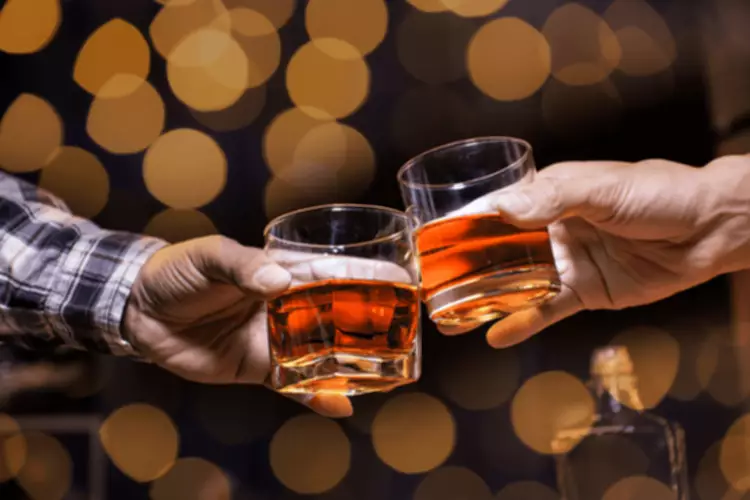
10 Common Alcohol Withdrawal Symptoms
Content
This adjustment period causes the painful side effects of alcohol withdrawal, such as shakes, insomnia, nausea, and anxiety. Alcohol has been a popular social staple among human civilization since ancient times, and still remains a good way for people to relax, socialize, and have fun. Some people manage to drink in moderation, such as during social events or while watching a game, and experience only mild side effects and withdrawals. Although positive changes may appear earlier, 3 months of not drinking can not only improve your mood, energy, sleep, weight, skin health, immune health, and heart health.
Lauren is an award-winning registered dietitian, author of three books and all-around lover of good food. Additionally, she manages the Instagram page @LaurenLovesNutrition, where people can receive evidence-based nutrition tips and updates. If you add in costs of drinking in social settings at restaurants, bars, and clubs, the amount might be more. For those with alcohol misuse and dependence, the conditions are connected to chronic sleep disturbance, lower slow-wave sleep, and more rapid eye movement. Dasgupta said the best people to avoid alcohol always are those under 21 years old, and not just for legal reasons.
Better overall health
Cut those from your diet—and don’t replace them with desserts or snacks—and you’ll start to drop pounds without much effort. At Paramount Recovery Center, we offer treatment in a realistic environment https://ecosoberhouse.com/article/what-brain-fog-of-alcoholism-is-and-when-it-goes-away/ that provides you with practical life skills to help you move forward in life. Learn more about our addiction treatment program, or contact our addiction recovery counselors today.
For women, it is defined as having more than three drinks in a single day or more than seven drinks a week. If you use alcohol every day, a life without drinking can be hard to imagine. However, stopping the use of alcohol can provide many benefits for your health and overall well-being. Still, there are some potentially life-threatening risks that can arise when trying to quit alcohol, especially for heavy, long-term drinkers. It’s important to be aware of these dangers and learn how to avoid them when getting sober. Unfortunately, you can’t completely avoid withdrawal symptoms, but you can reduce their severity by weaning yourself off gradually.
Need Addiction Support?
The team saw these results after adjusting for changes in diet, exercise and smoking, so the changes could be linked to people’s alcohol use. Over the past two decades, the number of American undergraduate students who report abstinence from alcohol has risen by 8%, and in the U.K. In 2019, adults aged 16 to 24 were most likely to be teetotal, with 26% saying they never drink. One reason for this is that your dopamine levels normalize after going sober. When you abuse alcohol, your brain’s dopamine receptors get overloaded and numbed, leading to feelings of sadness and even hopelessness that takes more and more alcohol to “fix.”
What to expect at 9 months sober?
But 9 months of sobriety teaches you how to do the best self-care- actually listening to your body and knowing what's right for it. And it's already starting to get better. Each day I feel more aligned with myself and it's easier to stop the endless spiral of guilt and shame before it gets too bad.
Certain prescribed medications can treat alcohol withdrawal, allowing patients to focus on other aspects of recovery. Excess alcohol consumption may cause weight gain, which means that cutting out alcohol could lead to weight loss for some people. If you need a break from alcohol, going alcohol-free for a month or more can bring about many physical and mental health benefits. One of the most significant benefits of giving up alcohol is that you may increase your lifespan.
Will I experience withdrawal symptoms if I stop drinking?
But once you fall into slumber, it can wake you up repeatedly in the night. Plus, it disrupts the important REM stage of sleep and may interfere with your breathing. Try skipping alcohol, especially in the late afternoon and evening, for more restful shut-eye.

Alcohol and headaches often go hand in hand—one-third of migraine patients report alcohol as a trigger for their pain. All the dehydration from alcohol consumption affects blood flow and pressure to the brain, causing headaches. And if you suffer from migraines, alcohol can often trigger an excruciating headache. But when you stop drinking, you eliminate all those alcohol-related pains. And because you are likely to be eating better and sleeping more, you might also reduce the number of stress-related headaches you experience. You may feel sleepy after a glass of wine and assume that alcohol helps you sleep better, but in reality, alcohol interferes with your ability to get a good night’s rest.
This is because alcohol can cause dehydration, which can lead to dry, dull skin. So, giving up alcohol can help your skin to look more hydrated and glowing. But anything more than a drink or so a day has the opposite effect, especially if you abuse or are addicted to alcohol. Express your concerns in a caring way and encourage your friend or family member to get help.
- Finally, alcohol ingestion can negatively impact the action of dopamine—a neurotransmitter and hormone that also affects your sleep.
- One of the unexpected benefits of giving up alcohol is that you may find yourself more productive than before.
- Once you’ve made the decision to change, the next step is establishing clear drinking goals.
- Along with anxiety and irritability, you may also experience mood swings when you give up alcohol.
It’s much easier to avoid drinking if you don’t keep temptations around. Go to the emergency room or call 911 or the local emergency number if seizures, fever, severe confusion, hallucinations, or irregular heartbeats occur. Ruddiness in your cheeks and around your nose may also start to fade, and other skin conditions—such what happens when you stop drinking alcohol as dandruff, eczema, or rosacea—may also improve, Dr. Raskin says. Sugar boosts levels of the “reward” chemical dopamine, which fuels feelings of pleasure, Dr. Raskin says. You might toss and turn at first, but give up alcohol and the sleep you get will likely leave you feeling more refreshed and sharp the next day.
Medical Supervision During Withdrawal
For 3 to 4 weeks, write down every time you have a drink and how much you drink. Reviewing the results, you may be surprised at your weekly drinking habits. Let friends, family members, and co-workers know that you’re trying to stop or cut back on drinking. If they drink, ask them to support your recovery by not doing so in front of you. Intravenous fluidsThis is necessary in all people with alcohol withdrawal. It is important to go to a living situation that supports you in avoiding unhealthy alcohol use.



この記事へのコメントはありません。